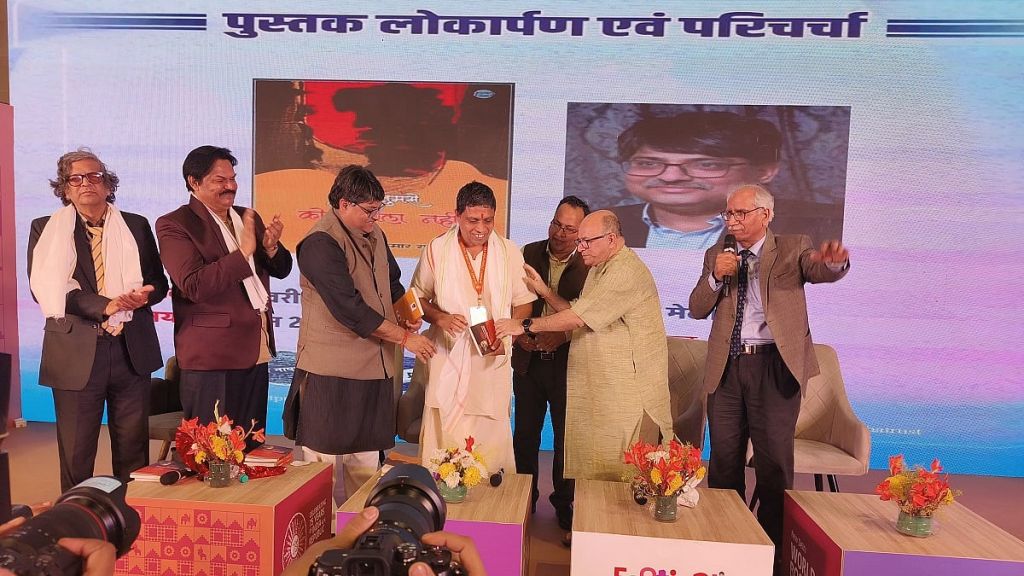
New Delhi, February 08: The ‘World Book Fair,’ organised in New Delhi under the National Book Trust, India (Ministry of Education, Government of India), was attended by Acharya Balkrishna, the Chief Executive Officer of Patanjali Yogpeeth. Speaking as the keynote speaker, he stated that events like the ‘World Book Fair’ are valuable as they bring together global literary knowledge. He emphasized that Patanjali has given worldwide recognition to Yoga and Ayurveda.
Regarding Yoga, Acharya Balkrishna said it is remarkable that Yoga’s effectiveness is now acknowledged worldwide. He explained that people of different languages and cultures understand the meaning of Yoga in the same way, making it universally accepted.

Discussing Ayurveda, he pointed out that while efforts have been made to establish Ayurveda on a global level, much more work is needed. He stated that Ayurveda is a complete science in itself and does not oppose any other medical system. According to him, modern medicine (allopathy) is like an emergency service, whereas Ayurveda is a way of life. He suggested that instead of viewing Ayurveda as just a medical science, a broader approach is required to integrate it into daily life.

Acharya Balkrishna shared that Patanjali has published a major encyclopedia called the "World Herbal Encyclopedia," which describes 32,000 medicinal plants. Previously, knowledge was available for only 12,000 plants. Additionally, Patanjali has also published "Swasthya Samhita," which presents a comprehensive and detailed understanding of new diseases, discoveries, and preventive measures based on Ayurveda. This book categorizes the human body into 14 sections, describes 6,821 remedies, and provides detailed insights into nearly 500 diseases. It also includes information on over 2,500 clinical conditions related to Ayurveda for the first time.

Regarding Patanjali’s products, he stated that the company produces items that families can trust. Their products meet all quality and purity standards, and their approach is family-oriented rather than business-driven. He urged manufacturers to produce goods while keeping their families’ well-being in mind.

Addressing the youth, he advised them to think about how their actions today will impact their future. He encouraged them to work not just for the present but also for long-term benefits.
He also mentioned that Patanjali has published books on Yoga, Ayurveda, Education, Medicine, Research, Ancient Manuscripts, and Nutrition. Furthermore, under the Indian Education Board, curriculum books for classes 1 to 10 are also being developed, keeping in mind international education standards.